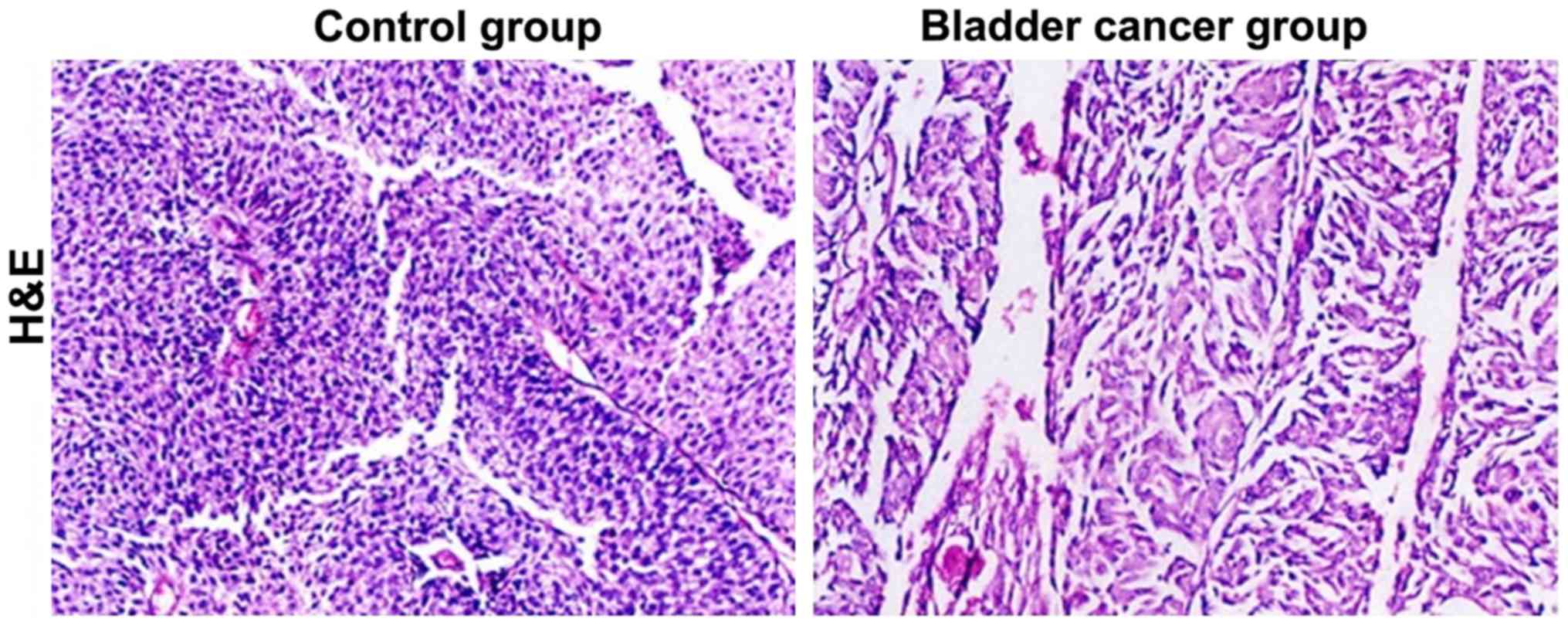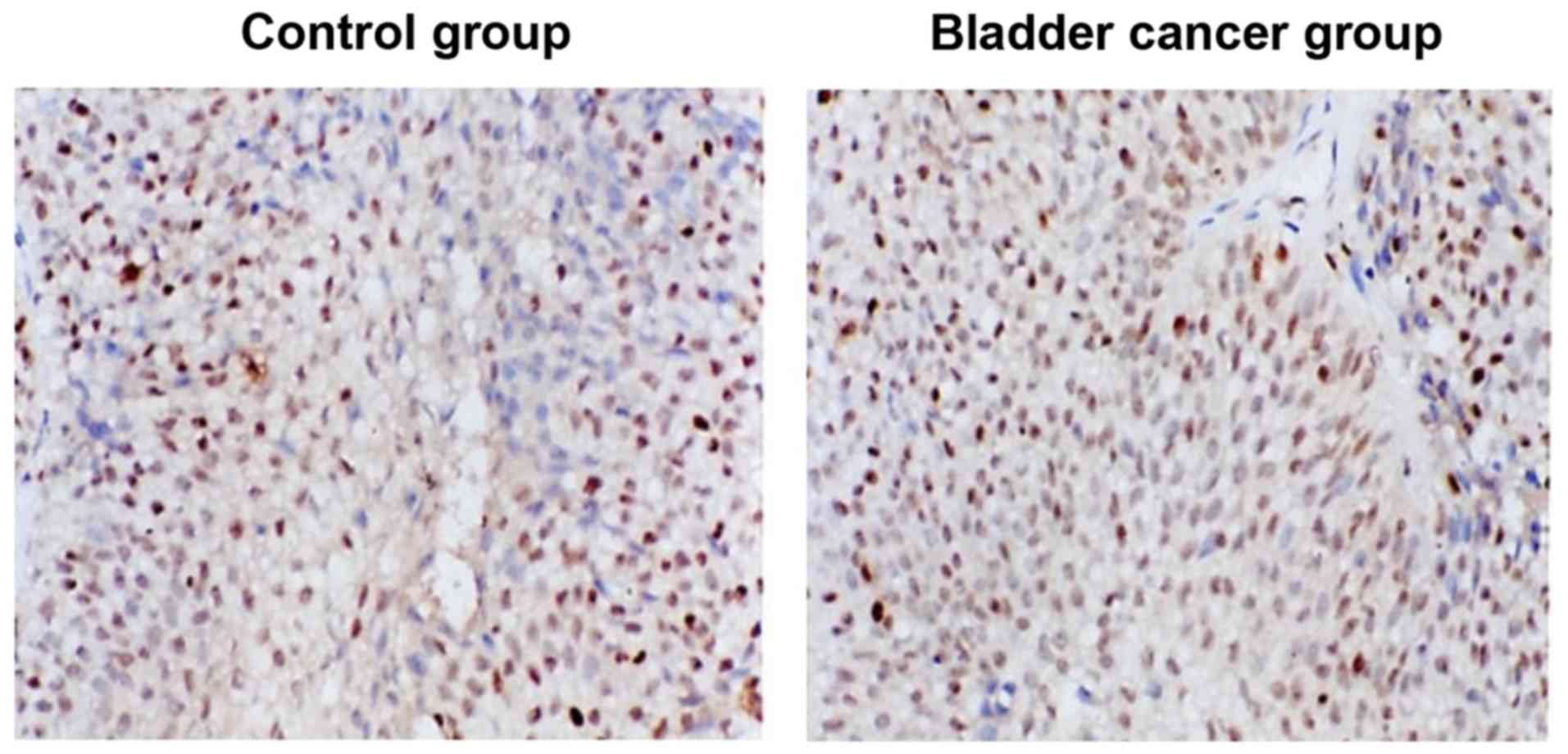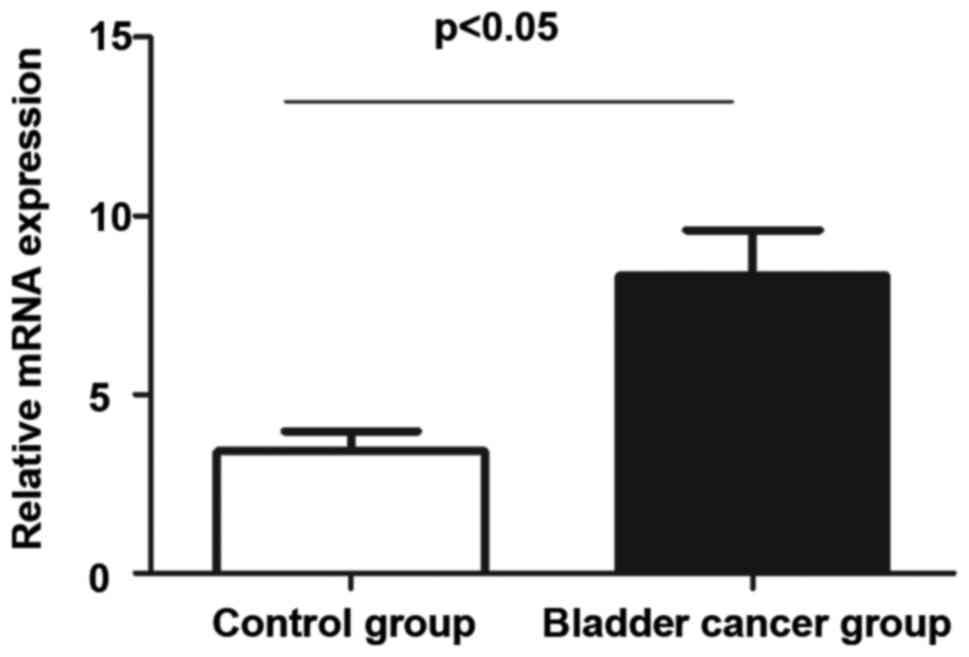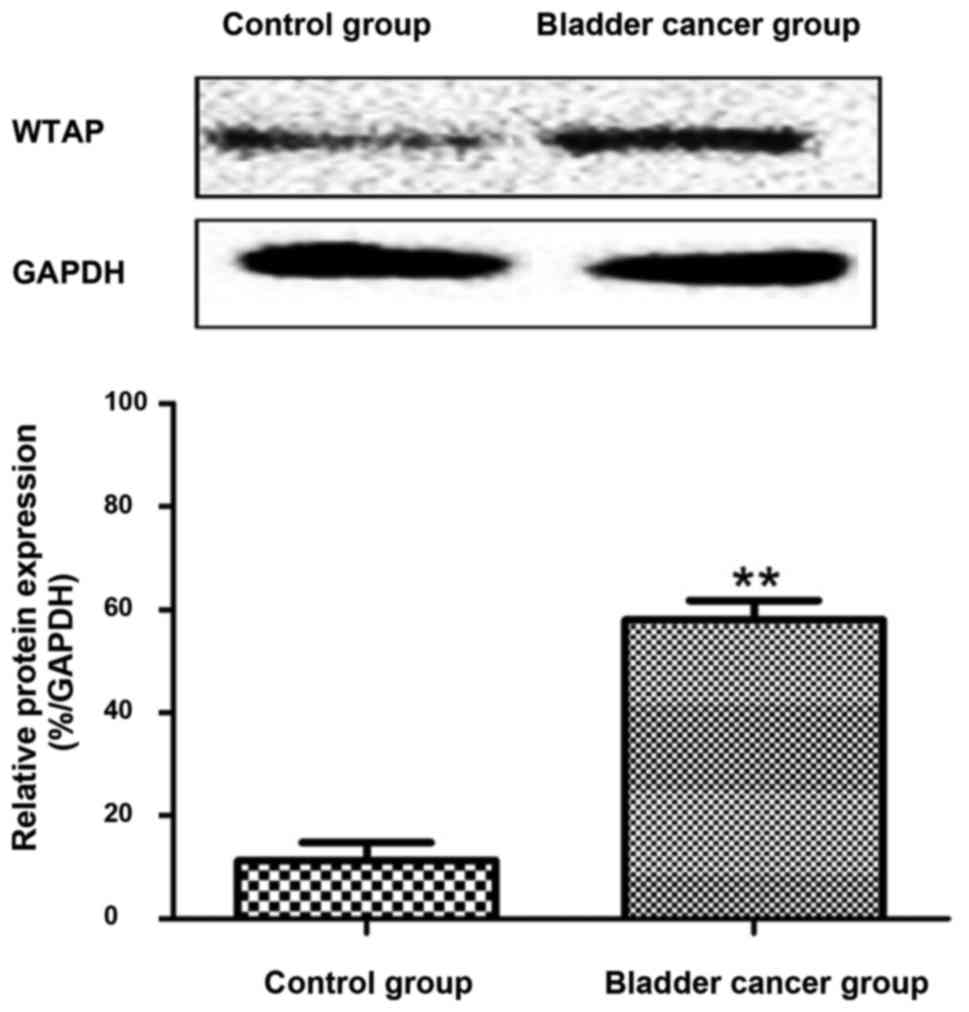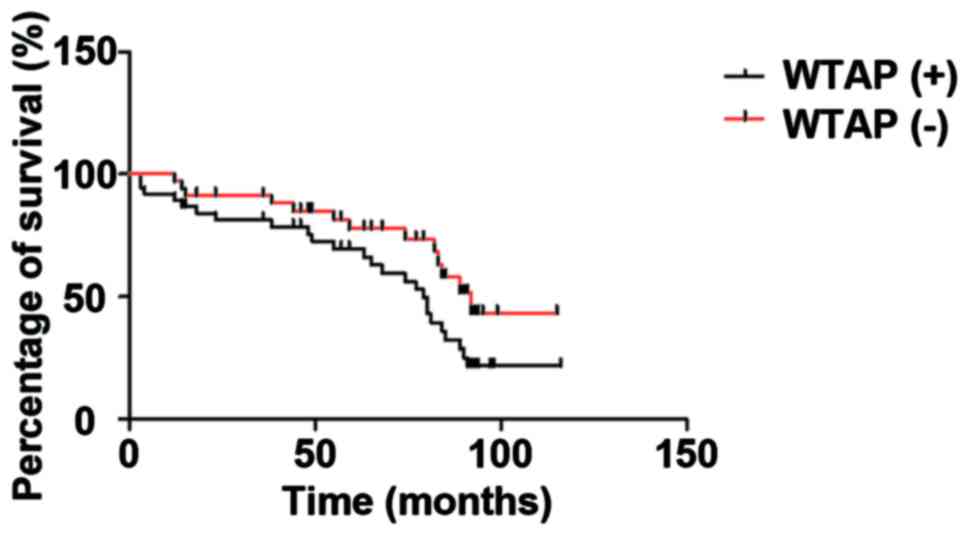|
1
|
Gupta S, Hau AM, Beach JR, Harwalker J,
Mantuano E, Gonias SL, Egelhoff TT and Hansel DE: Mammalian target
of rapamycin complex 2 (mTORC2) is a critical determinant of
bladder cancer invasion. PLoS One. 8:e810812013. View Article : Google Scholar : PubMed/NCBI
|
|
2
|
Cairns P, Evron E, Okami K, Halachmi N,
Esteller M, Herman JG, Bose S, Wang SI, Parsons R and Sidransky D:
Point mutation and homozygous deletion of PTEN/MMAC1 in primary
bladder cancers. Oncogene. 16:3215–3218. 1998. View Article : Google Scholar : PubMed/NCBI
|
|
3
|
Bellmunt J, Albiol S and Kataja V; ESMO
Guidelines Working Group, . Invasive bladder cancer: ESMO clinical
recommendations for diagnosis, treatment and follow-up. Ann Oncol.
20 Suppl 4:79–80. 2009. View Article : Google Scholar : PubMed/NCBI
|
|
4
|
Fiebig HH, Dengler AW and Roth T: Human
tumor xenografts: predictivity, characterization and discovery of
new anticancer agents. Contributions to Oncology. Relevance of
Tumor Models for Anticancer Drug Development. Fiebig HH and Burger
AM: 54. Contr Oncol Basel; Karger: pp. 29–50. 1999
|
|
5
|
El-Kott AF, Khalil AM and El-Kenawy A-M:
Immunohistochemical expressions of uPA and its receptor uPAR and
their prognostic significant in urinary bladder carcinoma. Int Urol
Nephrol. 36:417–423. 2004. View Article : Google Scholar : PubMed/NCBI
|
|
6
|
Span PN, Witjes JA, Grebenchtchikov N,
Geurts-Moespot A, Moonen PM, Aalders TW, Vriesema JL, Kiemeney LA,
Schalken JA and Sweep FC: Components of the plasminogen activator
system and their complexes in renal cell and bladder cancer:
Comparison between normal and matched cancerous tissues. BJU Int.
102:177–182. 2008. View Article : Google Scholar : PubMed/NCBI
|
|
7
|
Richter J, Beffa L, Wagner U, Schraml P,
Gasser TC, Moch H, Mihatsch MJ and Sauter G: Patterns of
chromosomal imbalances in advanced urinary bladder cancer detected
by comparative genomic hybridization. Am J Pathol. 153:1615–1621.
1998. View Article : Google Scholar : PubMed/NCBI
|
|
8
|
Bruch J, Wöhr G, Hautmann R, Mattfeldt T,
Brüderlein S, Möller P, Sauter S, Hameister H, Vogel W and Paiss T:
Chromosomal changes during progression of transitional cell
carcinoma of the bladder and delineation of the amplified interval
on chromosome arm 8q. Genes Chromosomes Cancer. 23:167–174. 1998.
View Article : Google Scholar : PubMed/NCBI
|
|
9
|
Lindblad-Toh K, Tanenbaum DM, Daly MJ,
Winchester E, Lui WO, Villapakkam A, Stanton SE, Larsson C, Hudson
TJ, Johnson BE, et al: Loss-of-heterozygosity analysis of
small-cell lung carcinomas using single-nucleotide polymorphism
arrays. Nat Biotechnol. 18:1001–1005. 2000. View Article : Google Scholar : PubMed/NCBI
|
|
10
|
Jänne PA, Li C, Zhao X, Girard L, Chen TH,
Minna J, Christiani DC, Johnson BE and Meyerson M: High-resolution
single-nucleotide polymorphism array and clustering analysis of
loss of heterozygosity in human lung cancer cell lines. Oncogene.
23:2716–2726. 2004. View Article : Google Scholar : PubMed/NCBI
|
|
11
|
Suraweera N, Duval A, Reperant M, Vaury C,
Furlan D, Leroy K, Seruca R, Iacopetta B and Hamelin R: Evaluation
of tumor microsatellite instability using five quasimonomorphic
mononucleotide repeats and pentaplex PCR. Gastroenterology.
123:1804–1811. 2002. View Article : Google Scholar : PubMed/NCBI
|
|
12
|
Bonnal C, Ravery V, Toublanc M, Bertrand
G, Boccon-Gibod L, Hénin D and Grandchamp B: Absence of
microsatellite instability in transitional cell carcinoma of the
bladder. Urology. 55:287–291. 2000. View Article : Google Scholar : PubMed/NCBI
|
|
13
|
Iyer G, Al-Ahmadie H, Schultz N, Hanrahan
AJ, Ostrovnaya I, Balar AV, Kim PH, Lin O, Weinhold N, Sander C, et
al: Prevalence and co-occurrence of actionable genomic alterations
in high-grade bladder cancer. J Clin Oncol. 31:3133–3140. 2013.
View Article : Google Scholar : PubMed/NCBI
|
|
14
|
Hudson MA and McReynolds LM: Urokinase and
the urokinase receptor: Association with in vitro invasiveness of
human bladder cancer cell lines. J Natl Cancer Inst. 89:709–717.
1997. View Article : Google Scholar : PubMed/NCBI
|
|
15
|
Russell PJ, Raghavan D, Gregory P, Philips
J, Wills EJ, Jelbart M, Wass J, Zbroja RA and Vincent PC: Bladder
cancer xenografts: A model of tumor cell heterogeneity. Cancer Res.
46:2035–2040. 1986.PubMed/NCBI
|
|
16
|
Russell PJ, Raghavan D, Philips J and
Gregory P: Applications of the xenograft as a model of invasive
transitional cell carcinoma of the bladder. Prog Clin Biol Res.
260:167–181. 1988.PubMed/NCBI
|
|
17
|
Kovnat A, Armitage M and Tannock I:
Xenografts of human bladder cancer in immune-deprived mice. Cancer
Res. 42:3696–3703. 1982.PubMed/NCBI
|
|
18
|
Kovnat A, Buick RN, Connolly JG, Jewett
MA, Keresteci AG and Tannock IF: Comparison of growth of human
bladder cancer in tissue culture or as xenografts with clinical and
pathological characteristics. Cancer Res. 44:2530–2533.
1984.PubMed/NCBI
|
|
19
|
Zhang H, Aina OH, Lam KS, de Vere White R,
Evans C, Henderson P, Lara PN, Wang X, Bassuk JA and Pan CX:
Identification of a bladder cancer-specific ligand using a
combinatorial chemistry approach. Urol Oncol. 30:635–645. 2012.
View Article : Google Scholar : PubMed/NCBI
|
|
20
|
Lin TY, Li YP, Zhang H, Luo J, Goodwin N,
Gao T, White RV, Lam KS and Pan CX: Tumor-targeting multifunctional
micelles for imaging and chemotherapy of advanced bladder cancer.
Nanomedicine (Lond). 8:1239–1251. 2013. View Article : Google Scholar : PubMed/NCBI
|
|
21
|
Anderson AM, Weasner BP, Weasner BM and
Kumar JP: The Drosophila Wilms' Tumor 1-Associating Protein (WTAP)
homolog is required for eye development. Dev Biol. 390:170–180.
2014. View Article : Google Scholar : PubMed/NCBI
|
|
22
|
Horiuchi K, Kawamura T, Iwanari H, Ohashi
R, Naito M, Kodama T and Hamakubo T: Identification of Wilms' tumor
1-associating protein complex and its role in alternative splicing
and the cell cycle. J Biol Chem. 288:33292–33302. 2013. View Article : Google Scholar : PubMed/NCBI
|















